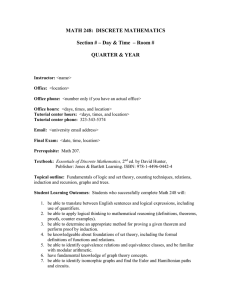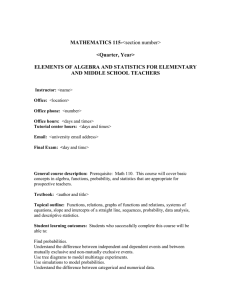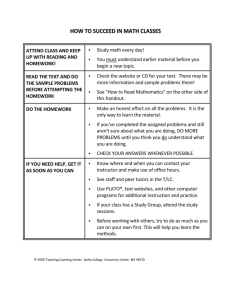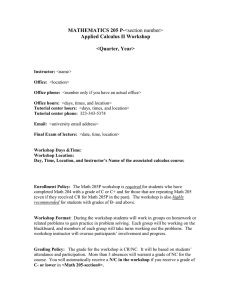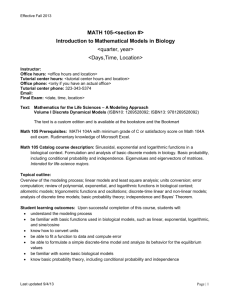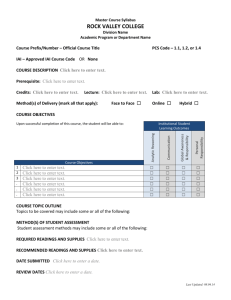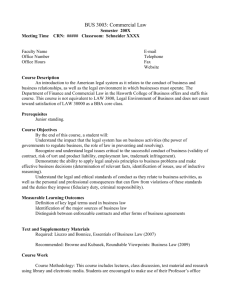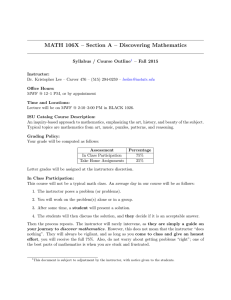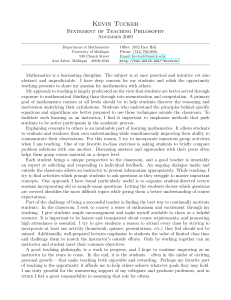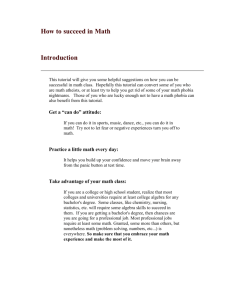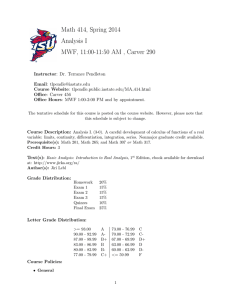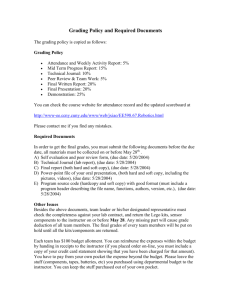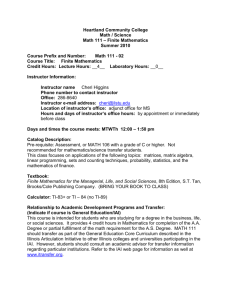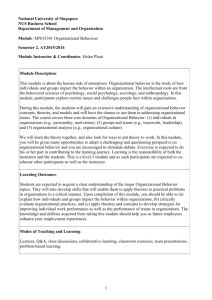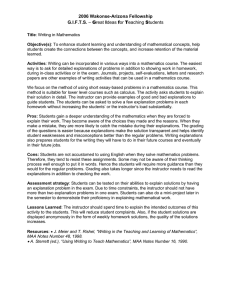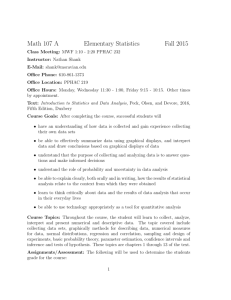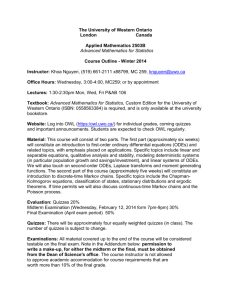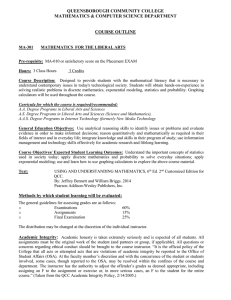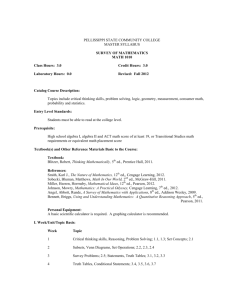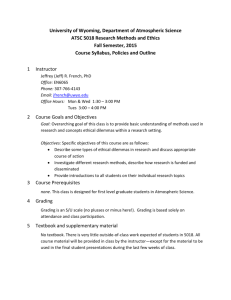MATHEMATICS 100
advertisement
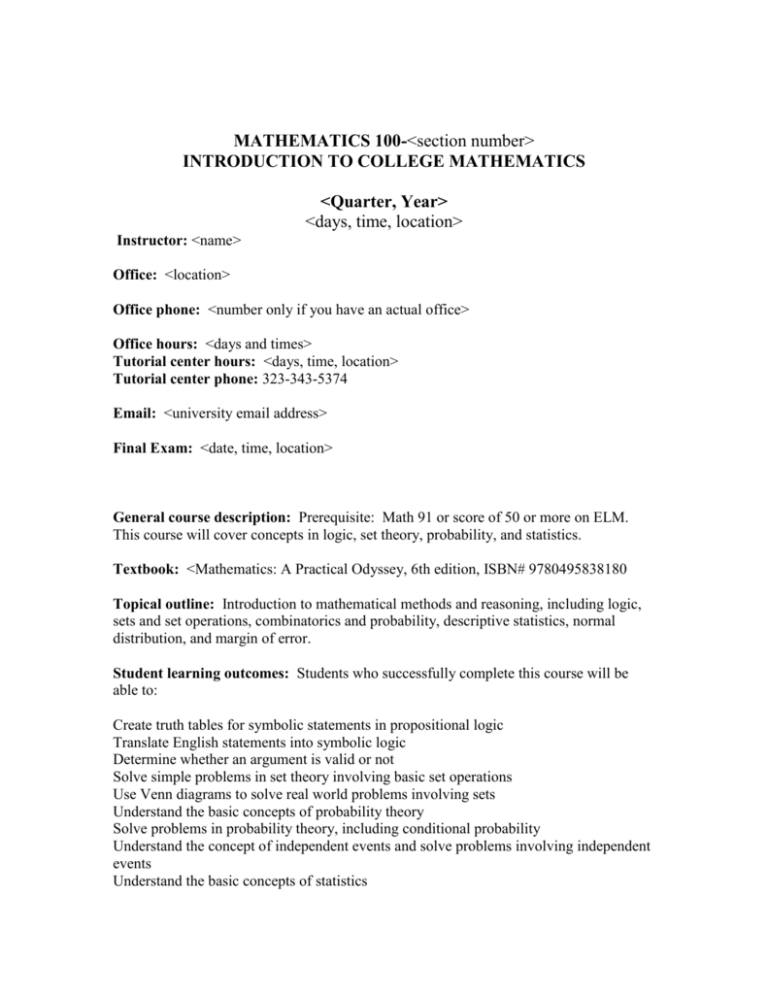
MATHEMATICS 100-<section number> INTRODUCTION TO COLLEGE MATHEMATICS <Quarter, Year> <days, time, location> Instructor: <name> Office: <location> Office phone: <number only if you have an actual office> Office hours: <days and times> Tutorial center hours: <days, time, location> Tutorial center phone: 323-343-5374 Email: <university email address> Final Exam: <date, time, location> General course description: Prerequisite: Math 91 or score of 50 or more on ELM. This course will cover concepts in logic, set theory, probability, and statistics. Textbook: <Mathematics: A Practical Odyssey, 6th edition, ISBN# 9780495838180 Topical outline: Introduction to mathematical methods and reasoning, including logic, sets and set operations, combinatorics and probability, descriptive statistics, normal distribution, and margin of error. Student learning outcomes: Students who successfully complete this course will be able to: Create truth tables for symbolic statements in propositional logic Translate English statements into symbolic logic Determine whether an argument is valid or not Solve simple problems in set theory involving basic set operations Use Venn diagrams to solve real world problems involving sets Understand the basic concepts of probability theory Solve problems in probability theory, including conditional probability Understand the concept of independent events and solve problems involving independent events Understand the basic concepts of statistics Find the mode, median, and mean of a set of data Understand the concept of variance Find the variance and standard deviation of a set of data Understand the normal distribution This course satisfies General Education Area A4 This course is graded ABC/NC Requirements: <attendance, assignments, homework, quizzes, tests, etc> Grading system: <instructor’s grading system> ADA statement: Reasonable accommodation will be provided to any student who is registered with the Office of Students with Disabilities and requests needed accommodation. Academic honesty statement: Students are expected to do their own work and to abide by the University Policy on academic honesty, which is stated in the Schedule of Classes. Copying the work of others, cheating on exams, and similar violations will be reported to the University Discipline Officer, who has the authority to take disciplinary actions against students who violate the standards of academic honesty. Student responsibilities: Students are responsible for being aware of all announcements that are made in class, such as changes in exam dates, due dates of homework and papers, and cancellation of class due to instructor’s absence. Students are responsible for announcements made on days that they are absent. Students must check their CSULA email account regularly for information from the instructor and the Department. Failure to do so may result in missed deadlines or other consequences that might adversely affect students. Note that you can forward this email account to any other account of your choosing.
